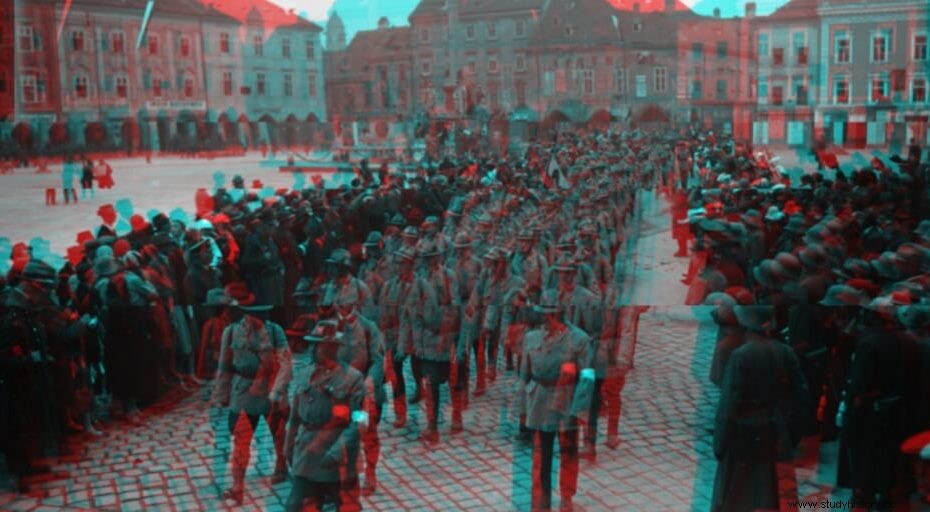
This article is a chapter from my book "Populism Made Easy", which you can currently pre-order in an exclusive special edition. Find out more here!
There is an interesting trend among the world's autocrats, dictators and populists. Although there is no solid reason for it, today almost all of them follow one and the same ideology. Every autocrat is a nationalist! This is striking because at first glance it seems so unnecessary. You don't have to submit to any restrictive ideology to become a dictator! And yet there is almost no autocratic and populist politician or ruler in the world who does not appear as a nationalist. A look at some European countries is enough to confirm this impression. All politicians who are currently causing a stir in the EU because of their autocratic style or desire for rule are also passionate nationalists. Populism without nationalism seems almost impossible.
In fact, it seems to be true:as a nationalist, your chances of ascending to power are better. Although… on closer inspection, this finding might not be that surprising after all. The autocracy itself may be free of ideology. Maybe modern populism too. But obviously there is no harm in using a successful ideology to get there, and nationalism is the most successful ideology to emerge in the last few centuries. In fact, he's downright impressive! Up until about 200 years ago, the average farmer in Europe would only have looked at you stupidly if you had asked him what nationality he was. That was not a question for the longest time in human history.
People spoke any language and belonged to any religious denomination, but personal identity was much more narrowly defined until relatively recently. The living environment of the people was limited to their family, their village, the local church and the immediate surroundings. It was only since the French Revolution that the idea of nation and national belonging began to take hold, which is fascinating given the fact that one cannot even imagine this large group, let alone feel part of it. Despite this abstract nature of nationalism, almost everyone today defines themselves primarily through their national "affiliation". With such overwhelming success, it's not surprising that dictators, and those aspiring to be like you, aren't new to trying to jump on the bandwagon. They always showed a healthy dose of creativity.
Communist revolutionary and father of the nation
As is so often the case when it comes to the creativity and turnaround of politicians, it is worth taking a look at Josef Stalin first. The man made a career-changing career change for the open-mouthed riser of populism like you. When Stalin died in 1953, an era in Russian history came to an end. He was the father of the nation and that is striking for an (internationalist, one would assume) communist. So how did this happen?
The first thing to realize is that the communist movements of the 19th century did not necessarily ignore the national question, no matter how international they acted. Especially in Stalin's homeland of Georgia, questions of nation, class and system have long been closely linked. The underground social-revolutionary figures – whether communists, anarchists or whatever – were at the same time always actors in the national struggle that was taking place in this non-Russian fringes of the Tsarist Empire. So you can probably also describe the young Stalin as a nationalist. Over time, however, that changed and the Bolsheviks under Lenin in particular saw themselves as a thoroughly internationalist party from the early 20th century. Their goal was nothing less than world revolution! That's probably what it is, communism in its "pure form" as it is still worshiped today by the deluded leftists...
Populism must not be aloof
At that time, the Bolsheviks still took the ideals of world revolution quite seriously, and in the Communist International, the Comintern, they linked up with other movements in the world. This was the situation that Joseph Stalin found when he took power in the Soviet Union in the mid-1920s. But Stalin would not be Stalin (literally "the steel one") if he had not soon overcome this inherited ideological limitation. He had a very different kind of communism in mind early on. A kind of communism that could and should also include nationalistic ideas. Because Stalin wasn't stupid. He recognized that in the Soviet Union, too, nationalism was a more deeply rooted ideology than elitist, aloof communism. None of the common people wanted to deal with theoretical texts such as Lenin loved to write. Communist theory is just terribly boring! The national idea, on the other hand, was familiar to the people of Russia. It had already begun its triumphal march in the 19th century in the tsarist empire and what is rooted in the people and well received by the simple people, the new strong man Stalin had to use for himself. As early as 1924 he began to openly use the phrase "Communism in one country" and less than two years later the idea was already official policy of the Soviet Union. The few Bolshevik brothers who opposed this change, like Leon Trotsky, were persecuted and murdered. So nothing stood in the way of the nationalization of the regime.
